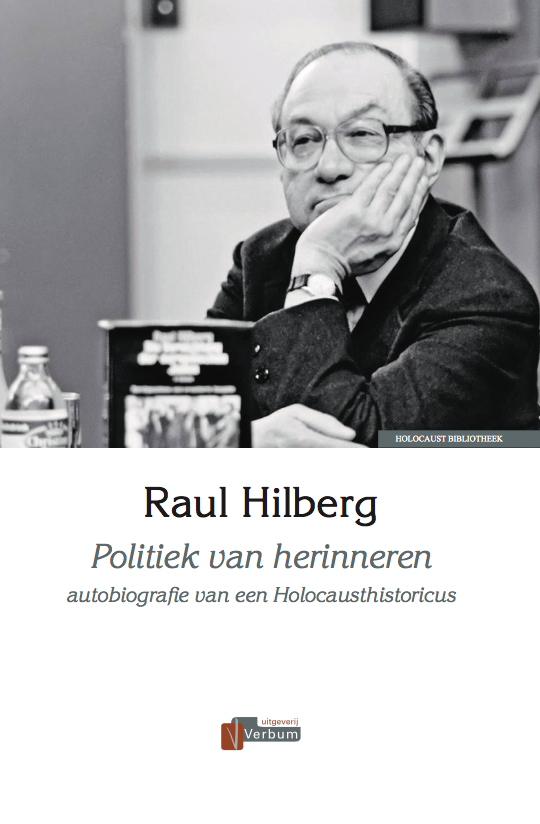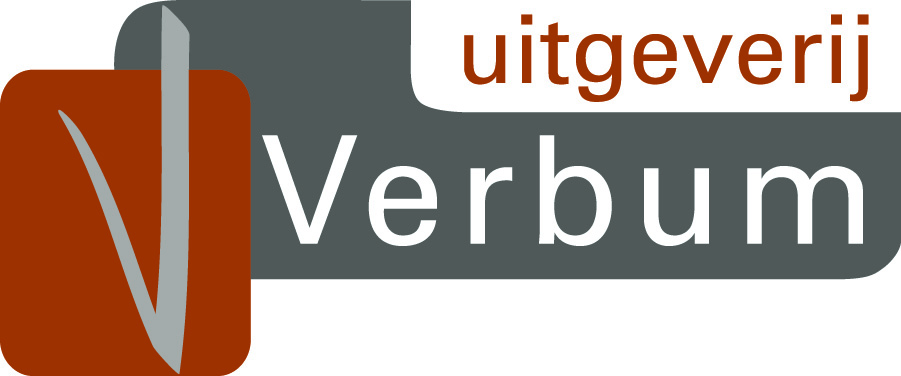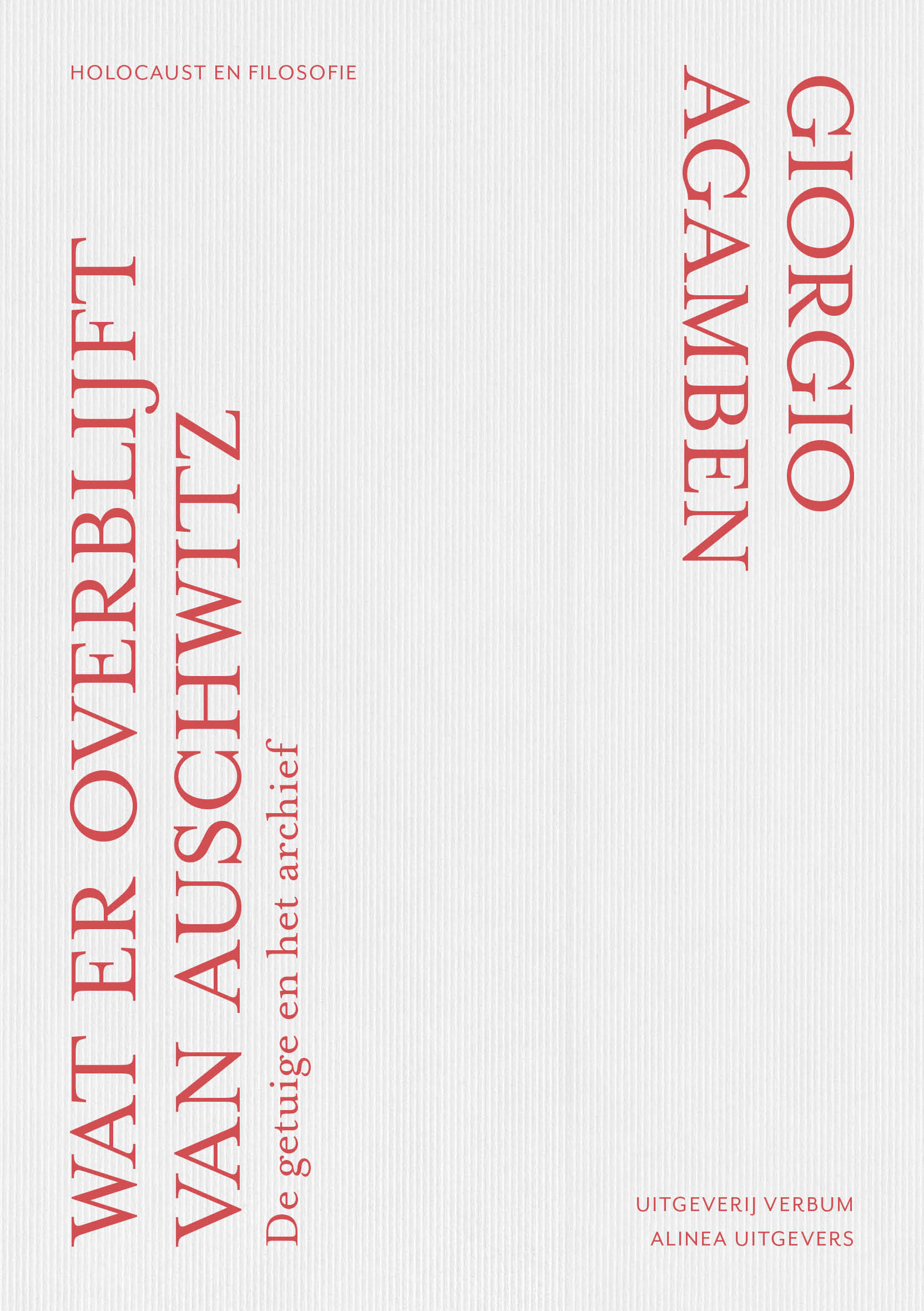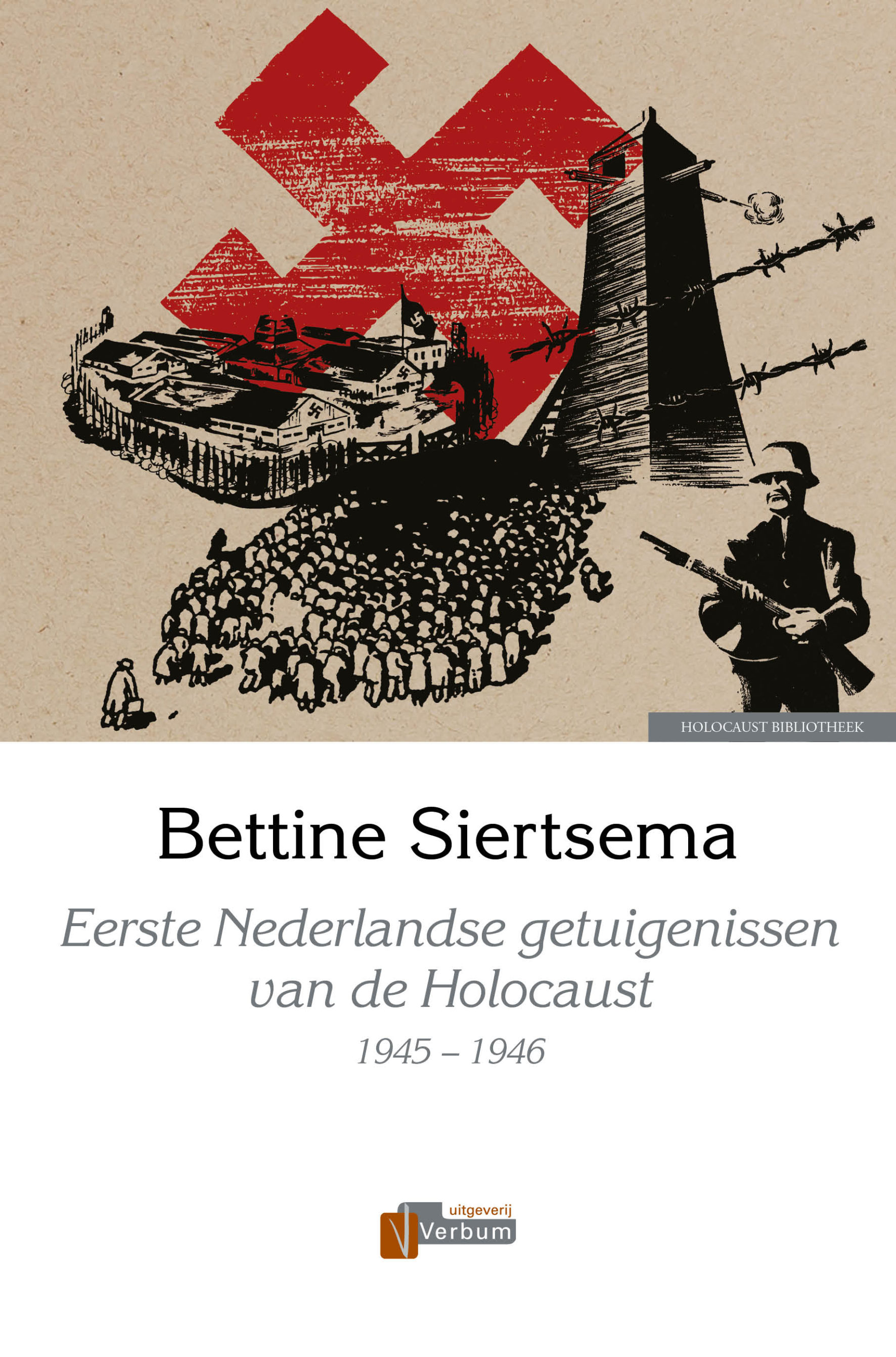English version
As a result of my subscription to the Institut für Zeitgeschichte (Zentrum für Holocaust-Studien) digital newsletter I received an invitation to attend a symposium dedicated to Raul Hilberg, the pioneer of historical studies on the Holocaust, to mark the tenth anniversary of his death. Uitgeverij Verbum Publishers has published Hilberg’s standard work and is soon to publish the translation of his autobiography The Politics of Memory (translated under the title Politiek van herinneren, Verbum 2017) therefore my interest was aroused. Part of the symposium was dedicated to Hilberg’s autobiography. It was clear that I needed to cancel the editor’s reunion of Groniek (the student historical society magazine of which I was co-editor in 1986) which was to be held on 18th October 2017, and be present at the adulation and critique of this quirky, Jewish, misunderstood, long maligned and too long neglected lone wolf of Holocaust historiography.
We travelled by train to Berlin and on to the rather boring embassy quarter, south of Tiergarten, where the symposium was to be held. The symposium was organized by the Friedrich-Ebert-Stiftung on the Hiroshimastrasse. The idea for the symposium originated from René Schlott of the Zentrum für Zeithistorische Forschung in Potsdam. The cooperating partners being the University of Vermont (where Hilberg was Professor of Political Science), the aforementioned Institut für Zeitgeschichte (IfZ) and the Frits Bauer Institut, supported by the S. Fischer Stiftung, Freunde & Förderer, the United States Holocaust Memorial Museum and the Jena Center Geschichte des 20. Jahrhunderts.
The list of participants shows in the main the leading names, highly respected historians who have a full-time professional or academic involvement with the history of the persecution of the Jews and of national socialism in Germany. Two éminences grises of holocaust historiography were also there, namely Saul Friedländer and Christopher Browning. Also present were Doris Bergen, Hilary Earl, Jürgen Matthäus and Peter Hayes from the United States, and Götz Aly, Frank Bajohr, Nicolas Berg, Christoph Dieckmann, Norbert Frei, Suzanne Heim, Ulrich Herbert, Wulf Kansteiner, Harald Welzer, and Michael Wildt representing the German academics. From Israel a historian with Dutch roots, Dan Michman (Yad Vashem), was present. The list includes many other speakers whom I cannot mention here as I must be concise. Conspicuously absent were Wolfgang Benz, Peter Longerich and Dieter Pohl, as were also a number of leading names from America.
Which subjects were addressed? Hilberg and Vienna. The influence of Franz Neumann and Behemoth on Hilberg’s theoretical framework. Discussions between Hilberg and Arendt. The three versions of Hilberg’s standard work. Re-evaluation of Hilberg’s conceptual model in developing The Destruction of the European Jews. Raul Hilberg, Philip Friedman and early research into the Holocaust. Hilberg, the rail-network and the Holocaust. Hilberg’s assessment of the Jewish Councils. Women in the life and work of Hilberg. Hilberg and the discussions about the Führerbefehl. The nature of Hilberg’s writing (regarding his laconic style). Analysis of the narrative in his standard work. Hilberg’s esthetic narrative. The story of the publication of his standard work. “I have never begun by asking the big questions”. Hilberg and the Jewish victims. Hilberg and the perpetrators’ documents. Learning from the perpetrators; Hilberg, Neurenberg and the emergence of his standard work. Emigration and expropriation in Hilberg’s work. And much, much more.
I cannot discuss all thirty-three lectures here, I shall restrict myself to my top 3, but first I would like to mention a few matters which I couldn’t help but notice.
*
There were hardly any speakers from countries other than Germany and the US present (Michman and a speaker from Sweden being the only exceptions). Does this mean that these two countries are leading the academic discourse? It seems to be the case. Not a single Dutch historian (excepting Frank van Free, a professional historian from the NIOD, attending but not participating), none from Belgium, France or Britain were present, or at any rate none who took part in the discussions. Yet even stranger was the fact that no-one from Eastern Europe was present (with the exception of a German employee of the Gedenkstätte Theresienstadt). Christoph Dieckmann also found this worthy of note. Of all the victims of the Second World War, including the Jews, much more than half were from Eastern Europe; and of the Jewish victims, more Eastern European Jews fell victim to the Germans and local people (the perpetrators were not all Nazi’s). Yet at this symposium academics from these countries are totally absent (among which were Poland, the Baltic States, Romania, the Ukraine and Russia). Why? Is the subject of no interest there? Before the beginning of World War II and the Holocaust millions of people had already become victims (Holodomor and the pogroms), yet no well-known or respected historian dealt with the subject. A historian from the US, Timothy Snyder, became the one to do so.
Another point of note was the difference in tone between the Americans and Germans. The Americans often think and argue clearly and directly from A through to Z. Whilst the Germans, even linguistically, take a much more roundabout route; still I feel that the Germans have a better insight into the nature and history of the Germans, even though it sometimes provides too much ballast. When Dieckmann and Klein shared a joke about the difference between Germans and Austrians all the Germans laughed heartily, but the Americans didn’t get the witz. In my opinion, this is also apparent in their published work. Today’s German historians seem to navigate their way through the curiosities of the archives better than the Americans do. The Americans on the other hand are better at setting out a clear storyline for educational purposes. Logic and accessibility seem to be on a higher plane. The Germans prefer solidity.
A third observation is that the number of Jewish historians is steadily decreasing. In the past, the Holocaust historiography was dominated by Jewish historians (Hilberg, Yahil, Bauer, Friedländer and others) but currently there are hardly any Jewish historians leading in this field. Does this indicate that, although the subject was initially left to the Jewish historians, the passage of time has provided a certain distance, making room for a less emotional and more matter-of-fact approach and thus allowing the non-Jewish historians to feel a willingness, or even the need, to step forward? One obvious explanation may be that there are not many Jews left in Germany and so there aren’t any, or hardly any, Jewish-German Shoah researchers left, and the German universities are not inviting those remaining to come to Germany either. The same can be said about the Netherlands too. Here, initially the persecution of the Jews was recorded by Jews such as Abel J. Herzberg, Jacques Presser and Loe de Jong but they have passed and a new generation of Jewish historians has not taken their place. Many detailed and worthy research, dealing with separate themes within the subject, have been published, but, whether because of a lack of ambition or of challenge, a new Presser has not yet arisen to describe and interpret its entirety. Most of the (leading) historians who currently specialize in the persecution of the Jews are not Jewish. Having noted this to be the case, what is its relevance? Declining Jewish interest? Everything has already been said? Academic interest developing along a scale, beginning with the great themes and moving on to the more intimate themes? Is the debate becoming necessarily more matter of fact? Pure coincidence? Or is the observation not worth mentioning and utterly unimportant?
This brings me to my last contemplation. It would seem that (just as with soccer these days) the Netherlands no longer plays a part in the Holocaust discourse. A great pity, and unnecessary. Dutch historians have truly made a contribution to the historiography, yet on the whole they are invisible. This is largely due to the fact that Dutch historians generally only publish in Dutch. In The Destruction of the European Jews, an interesting recent publication in English by Christian Gerlach (of which Verbum have acquired the copyright), both an article in English by Johannes Houwink ten Cate and Ron Zeller & Pim Griffioen as well as the publication by Bob Moore (Victims and Survivors. The Nazi Persecution of the Jews in the Netherlands) are cited. Jacques Presser, though having been translated, is neither cited, nor referred to or found to be of importance. Herzberg and De Jong have not been translated and are thus by definition not referred to. The important comparative study done by Ron Zeller & Pim Griffioen has not been translated and is thus non-existent to international Holocaust historiography, or at best, only the English summaries are read. If Dutch academics wish to be counted, then their work must either be translated or written in English. In addition, the Dutch need to step up; Herzberg, Presser and De Jong have earned their place in the historiography but surely now a new standard work would be a welcome contribution to this field.
In the Netherlands, the American historians of the Holocaust are translated more often than the German. Added to that, German historians in this field are largely ignored by the Dutch publishers. Of all the German experts present, none have been translated into Dutch! What does this signify? Are the Americans better, more authoritative? Do they sell better? Or are the Dutch specialist publishers unfamiliar with relevant developments in the Holocaust historiography? Having posed the question, the answer seems obvious.
Following on from these relevant or irrelevant opening observations, we move on to the reviews of the symposium lectures. A compilation of all the contributions shall, without doubt, be published, allowing me to limit myself to considering the three contributions which most caught my interest. They are the lectures by Götz Aly, Ulrich Herbert and Christoph Dieckmann. The contributions made by Harald Welzer with his elusive intellect, Wulf Kansteiner (an analysis of the language of narrative in The Destruction of the European Jews by Raul Hilberg), and Peter Hayes (for the Germans the transportation of the Jews during the Holocaust posed no problem at all; the number of trains needed for the transportation was only a tiny percentage of the total number of trains scheduled) fell just short of the top three.
*
Götz Aly – Wie und warum das Institut für Zeitgeschichte 1964 und 1980 die Übersetzung des Hilberg hintertrieb
Aly had already published his lecture in the Süddeutsche Zeitung on October 17, 2017, that is, the day before the lecture, under the title ‘Angst vor der Wahrheit’. In his standard work, The Destruction of the European Jews, Hilberg had set himself the task of unravelling the machinery and workings of the perpetrators. And by perpetrators he meant the Germans. This he did with the utmost precision and detail, sparing no-one. The first publisher to be approached (Droemer Knaur Verlag, founded specifically to document the Nazi past) asked the IfZ for their judgement on the content of the work. It was negative, and the book was not published. Some years ago, Aly discovered that Droemer Knaur’s director had governed a small camp near Saalfeld, where also many were made victims. As Hilberg was very familiar with the lists of German perpetrators this man Boll must have been afraid of publication. Abgelehnt!
Rowolt Verlag also declined to publish Hilberg’s work.
Following the 1979 broadcast of the television series Holocaust, Verlag C.H. Beck considered publishing Hilberg. Again, an opinion was asked of the IfZ and again the answer was: do not publish. It was deemed out dated.
Yet the real reason for not publishing was the protection of their own professional historical circle. A German must surely be preferable to an (most likely emotional) American Jew. Verlag C.H. Beck decided not to publish.
In the end, a small leftist publisher, Verlag Olle & Wolter, published the hefty manuscript in 1982. The 4000 volumes were quickly sold out, for the exorbitant price of 128 marks apiece. Yet the book was not even given a review, at least not in the leading magazines and newspapers. This changed when the Fischer Verlag had it translated and published again, in 1990.
In the meantime, the IfZ had had the bulk of the work translated and was using it for their own internal research. Officially declaring that the translation was necessary as a foundation for their advice.
In Politiek van herinneren, Hilberg laments the German attitude and stonewalling. It was not transparent and only served for their own protection.
Aly’s article and lecture immediately gave rise to a heated exchange between Aly, a former journalist, and the academic establishment. We were sitting behind Norbert Frei and Ulrich Herbert. They became agitated, conferring continually while Aly was speaking and couldn’t get to the microphone quickly enough when he had finished. Frei was vicious, saying that History could do without the loosely-founded insinuations of the likes of Götz Aly. By that he meant some of Aly’s more loosely-founded disclosures. One can well imagine how things fly behind the scenes. Aly does not belong to the world of academia and is able to write unfettered, but he can not be ignored. He has been awarded too many historical prizes and is held in high esteem. The terrible twins (Frei and Herbert) were mean and nasty but Aly hardly blinked. He had them right where he wanted them.
Perhaps this wasn’t the most important in-depth lecture but it did provide some fireworks.
Ulrich Herbert – Zur Entwicklung der Holocaustforschung seit den 1980er-Jahren.
Ulrich provides us with a clear view of the Holocaust historiography since the 1980’s. The Holocaust was not given a central role in the history of the Second World War until after the 1980’s. Daniel Goldhagen’s book, Hitler’s Willing Executioners, can be seen as a turning point. The current view in Holocaust historiography is that the genocidal murder of the Jews was anchored in the same racial policy applied to all the different victim groups who suffered during World War II. A good example of this is Christian Gerlach’s new work (mentioned earlier). Friedländer is praised for bestowing an important role on the victims, and so allowing them to be seen. Something that Hilberg omitted to do. In addition, Herbert highlights many recent developments such as regionalization, internationalization and the work by Timothy Snyder, linking murderous starvation in the Ukraine and Russia to the Holocaust, something that by large happened in the administratively unorganized eastern regions. He also mentioned the recent work by Götz Aly (Europa gegen die Juden, 1880-1945) in which he shows that the Germans were helped intensively by other governments, individuals and so on. Recently more attention is also focused on themes such as robbery, shame, moral outrage, the forced labour of Jews, the role of the German people, parallels between colonialism and Auschwitz (Windhoek in Namibia and Lebensraum) and comparative studies of violence.
Something which appealed to me greatly was Herbert’s warm plea for hearing every victim’s testimony. He called it Sonderzeugnisse. Each and every story is unique and worth publishing, because a victim without a unique story could only be one who had already be murdered. Therefore, every Sonderzeugnis is of historic interest. To me that is welcome encouragement, we publish many victim’s memoirs at Uitgeverij Verbum Publishers, and we so often hear bookshops and others say: “Another book on the Holocaust?”. Now we have another good reason to go on publishing these important testimonies. No, the point may not have been the most important one of Herbert’s lecture, but we are proud to appropriate it for ourselves. Herbert, incidentally, was the only speaker who showed any sign of moral outrage regarding the Holocaust and die kalte Welt der Täter.
Christoph Dieckmann – Krieg, Besatzung und osteuropäisches Judentum in den Studien Raul Hilbergs
The energetic Dieckmann brought a breath of fresh air to the symposium. Inspired, enthusiastic, inquisitive and likeable are words which may be used to describe this young historian who gained his doctorate under Ulrich Herbert. Handy to know the pecking order.
Hilberg was one of the giants of the Holocaust historiography. His importance cannot be underestimated yet we must also view his work critically. Why did Hilberg choose not to read the work of his contemporaries and incorporate their conclusions in his own work? Or, for that matter, just show that he was familiar with their work? Hilberg was a ‘documents man’. To him the archive was important, he set out his own path and would not be side-tracked by his colleagues. The archive was the only subject of importance to his work, and then only the archives of the German perpetrators. Because of this he was limited by only the one perspective. He was unable to change perspective and look at his subject from other angles. Something that later historians, such as Friedländer, managed to do in regard of the victims. Hilberg is therefore the pioneer of the perpetrator’s perspective and not, as Friedman is seen, the pioneer of the Holocaust research. Dieckmann returned to the question of the absence of an East European perspective of the Holocaust. After all, 98% of the victims were not from Germany but from countries other than Germany, mainly Eastern Europe. Why did Hilberg not choose to use that perspective?
In addition, Hilberg does not pay much attention to the Jews as victims. Why? Hilberg seems to be angry with the Jews. He cites the high-ranking SS officer Erich von dem Bach-Zelewski, who was responsible, among other things, for crushing the uprising in the Warsaw ghetto, as if in provocation. Hilberg is in agreement with this Nazi: if the Jews had been more organized then their plight might not have been as disastrous.
Dieckmann’s main argument is this: in the current debate on the Holocaust, multi-perspectivity (for want of a better word) is of great importance and Hilberg did not practice it. He followed his own path, which was of importance, but dated. The Holocaust should also be understood in the context of a cumulative spiral of violence, a part of which was the persecution of the Jews. The Germans could never have achieved this on their own. Once again, referring to the new research by Christian Gerlach and Götz Aly.
*
Christopher Browning (Chris for friends) took the rostrum to speak about the three different versions of the standard work (The Destruction of the European Jews). Just before he spoke I brought to his attention the fact that there are actually four versions. Shortly before his death Hilberg had submitted a pack of more than 200 alterations for the Dutch and Hebrew editions. This means that the Dutch and Hebrew editions are the most extensive, as far as the last comprehensively revised edition by the author is concerned. Browning waved it away (alterations do not constitute a new version) but did mention it in his reading. Nicolas Berg later suggested that it would be worth using the Dutch version for a new German version.
Following that action your Dutch publisher was able to relax back pleasantly into the never-ending stream of lectures. Frank van Free called it a Prussian programme and he was right, but all in all it was worth it. Extremely tiring, but inspiring and easy to follow.
The catering at the symposium was a bit lean. Worryingly a lot of pushing and grabbing went on when not enough food had been ‘organized’ on the Wednesday and pretzels had to be hurriedly raked up to fill the gaps. To think that we were at a symposium dealing with the Holocaust ……
It was unnerving that at least four speakers made an unfortunate slip of the tongue at least once by saying Hitler instead of Hilberg. Unfortunate and also somewhat unjustified. According to narrative research Himmler, not Hitler, was the real hero of The Destruction of the European Jews. If we listen to Hilberg, Hitler’s brains answered to Himmler and not Heydrich. HhhHHH!
Gerton van Boom
October 21st, 2017




